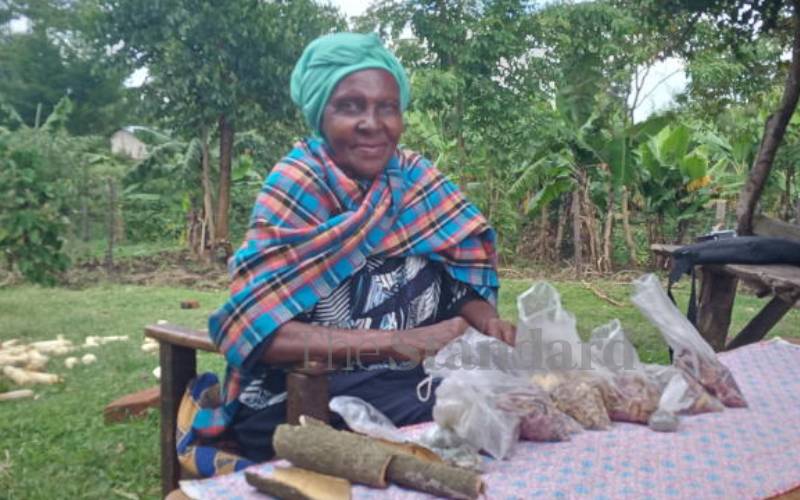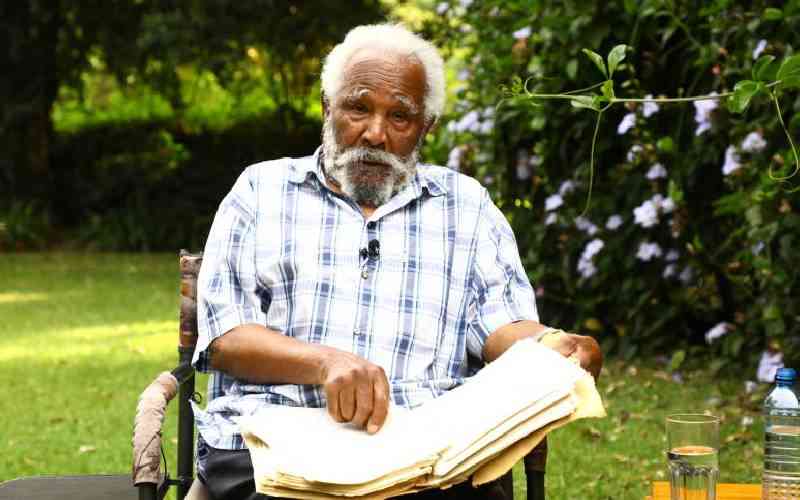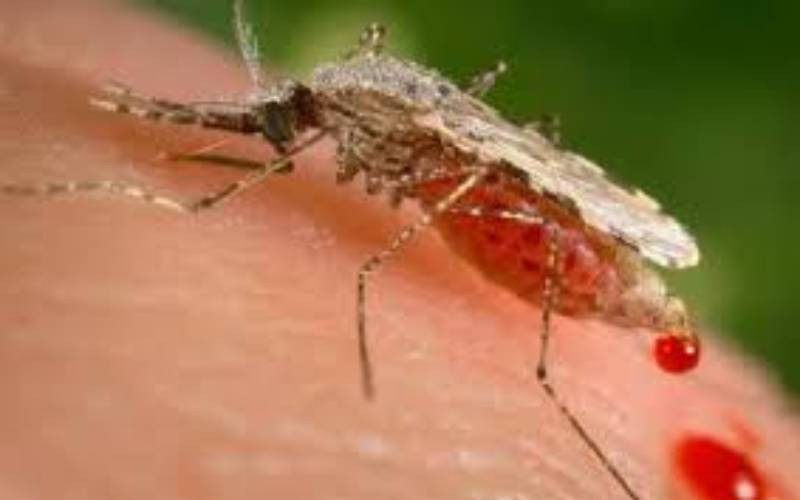
Over time immemorial, community herbalists have provided remedies for various ailments using herbs extracted from indigenous trees.
Despite the existence of conventional medicine, some community members among the Nandi still prefer herbal medicine provided by medicine men and women in society.
Herbalists in the community have maintained a health heritage passed from one generation to the other making the indigenous medication a respected field.
But continued degradation of the natural environment is posing a negative impact on traditional medicine. Human activities have adversely affected indigenous forests, where herbal medicine is extracted.
The destruction has seen the adoption of stringent measures towards the conservation of tree cover across the country. National government policies enforced to protect forests in line with global climate change initiative has restricted access to indigenous trees for herbal extraction.
The trend has resulted in a scarcity of medicinal herbs leading to a hike in the cost of available herbal medicine.
Grace Kosgei, a resident of Kapkangani in Nandi County who has been making herbal medicine for 40 years said trees that are mostly used to extract the medicine have been decimated as communities venture into exotic tree planting for commercial purposes.
“After harvesting indigenous plants from their settlements, people have been growing trees like cypress, eucalyptus, wattle trees among others in their residential areas, which have no medicinal value but good for timber,” she stated.
She said farmers have gradually opted for exotic trees that are considered to mature faster than the indigenous trees, thus there has been a tremendous growth of privately owned forests composed of plants, which replaced the African trees.
Among the state-owned forests and water catchment areas in Nandi that have been adversely affected by the environmental aspect due to economic revolution include Nandi forest, Kipkurere, Serongonik, Ng’atibkong, Kipsamoite, and King’wal swamp.
Grace noted that the government forests were the only places to get the medicinal trees and therefore she has been forced to travel to neighbouring counties including Elgeyo Marakwet, Kericho, and Kakamega, to extract herbal substances from the medicinal plants thus pushing up the cost of herbal medicine.
“It has been costly traveling across the North Rift region. Like going to Olenguruani in Kericho County, it costs me over Sh2,000 and other miscellaneous expenses,” she states.
She said the costs due to operations have led to an increase in the cost of herbal medicine to enable those who search for them to sustain themselves.
Grace said among the vital trees apparently no longer existing in the locality include Murguiywet (Anacanthecea), its leaves are used to make concoctions to treat skin rashes and coughing in children.
Dryopteris Marginalis, commonly known to the locals as Tilalwet are scarcely found in the remaining natural forest and are also used to treat common colds.
Lepidagathis scariosa Nees (Nyamdutiet), which according to William Lelei, said that it was majorly found in some parts of Chesumei and Mosop sub-counties have remained scarce. The locals used it as an infusion (internal) for anti-diarrhoea, wounds, oedema, foot and mouth in livestock, pneumonia.
In the regions where snake bites incidents were experienced including Tindiret and Nandi hills, the locals treated the victims using Barleria grandicalyx Lindau (Cheperenet), where leaves are used as paste (external) for snake bites.
Lelei, an 82-years old herbalist operating in Kapsabet town, is reportedly sending his team to regions where forests are still intact including Narok and Elgeyo Marakwet to collect specific medicines from the specific trees to use in his herbal clinic.
“My clients always seek medication for common diseases like ulcers, backache, toothache, skin diseases, and fertility problems among others. All these forces me to look for the combination of various medicinal tree’s backs, roots, and leaves which determine the efficacy of the medicine to cure the diseases,” said Lelei, who said to have to operate as a herbalist for 50 years.
However, Zakayo Maiyo, who is also a renowned herbalist in Nandi said he had raised the cost of offering home clinic services to the clients.
“The costly searching for herbal medicine has forced us to set the down payment (Chebrewa) from Sh1,000 and above. This will help us to meet the logistics costs we incurred while travelling,” said Maiyo.
Implementation of environmental policies which banned the encroachment of forests in Nandi since 2006, over 4, 000 traditional home medicine men and women according to the Herbalist Association, have found it impossible to access government forests to obtain the medicinal trees.
Last year, the county assembly of Nandi passed a bill banning the growing of exotic trees like Eucalyptus near water catchment areas and instead encouraged locals to plant indigenous trees.
Dr James Meli, the county environment director stated that the county alongside the ministry of environment is targeting to rehabilitate a total of over 26,000 acres of public forests which have been negatively affected by human activities including farming, charcoal burning, and settlements.
“Before the end of this year, we shall have planted over 10,000 indigenous trees to restore our forests. We have ordered to the private lands located in the wetlands to grow traditional trees,” said Dr Meli.
 The Standard Group Plc is a multi-media organization with investments in media platforms spanning newspaper print
operations, television, radio broadcasting, digital and online services. The Standard Group is recognized as a
leading multi-media house in Kenya with a key influence in matters of national and international interest.
The Standard Group Plc is a multi-media organization with investments in media platforms spanning newspaper print
operations, television, radio broadcasting, digital and online services. The Standard Group is recognized as a
leading multi-media house in Kenya with a key influence in matters of national and international interest.











